A newly minted and wealthy disciple, Pukkusa brought with him two robes made from gold thread. This was not just an offering but his way of showing his allegiance to Buddha.
“I beg you to do me the honor of accepting these,” he said.
“Put one of the robes on me, and the other on Ananda,” Buddha ordered.
Soon after Pukkusa left, Ananda took off the robe he had received and put it on Buddha who was now wearing two robes.
“You alone, Tathagata,” Ananda said, “is befitting of such opulence, for you are the one gone beyond. Gold will hamper my spirit of service.”
He then stepped back to take a look at Buddha, and said, “It is strange that when these robes are put on you, they seem to lose their splendor. The clarity and brightness of your complexion makes them seem dull by comparison.”
Buddha had been unwell ever since he’d had the meal at Chunda’s, his devotee, so he smiled with a bit of strain, and said, “There are two occasions when the complexion of a holy man or woman is especially clear and bright. The first occasion is on the night when enlightenment is attained. The second is when the enlightened person is about to pass into complete nirvana.”
Buddha led his monks and nuns down to the river Kakuttha. He waded into the water, and bathed his entire body. After meditating for a short time, he said to Ananda, “I am concerned that, when I die, Chunda the blacksmith will be overwhelmed by remorse. He will know that the last food I ate was his pork, 1 and that this made me ill; so he will blame himself for my death. So after I have died I want you to go to Chunda, and say, ‘It is to your credit that you gave Buddha his last meal, and he himself asked me to express his gratitude to you. The meal he ate at your house hastened his passage to nirvana.’”
Buddha led the monks to Kusinara (present day Kushinagar in Uttar Pradesh, India), on the far side of the river Hiaranyavati 2 and stopped in a grove of sal trees. He asked that a couch be made for him between two sal trees with its head to the north. “I’m very weary, and wish to lie down,” he said.
Ananda did as asked and Buddha lay down on his right side, with one foot resting on the other. At that time the sal trees were covered with blossoms, and petals fell on Buddha.
The whole environment was particularly solemn as it was clear to everyone that Buddha might be leaving his body. Many bhikkhus and bhikkhunis, monks and nuns, hid their faces in their arms, crying in suppressed tones. Some others wept quietly at the back, though they were more audible. The senior monks and nuns in the front put up a brave face. But muffled sobs and sniffles lingered, like the faint chirping of tired birds at the end of dusk. Most monks and nuns had practiced Buddha’s teachings their entire lives and followed him with utmost reverence. And yet, today no wisdom in the world could placate them as a dense cloud of mourning hung in the air, ready to burst any moment.
“What are we to do with your bodily remains?” Ananda asked, keeping his composure.
“Do not hinder your spiritual progress with such a concern. Devote yourself to your own good.”
Buddha said that there were many wealthy lay disciples who would want to honor his remains and that they be allowed to do so. Ananda still insisted on getting a clear instruction to which Buddha replied that his remains should be treated in the same way as people treat the remains of a universal monarch and explained in detail how his body should be prepared, cremated and how a burial mound be built on his ashes. Visiting his burial mound would give people calm and peace, he said.
“Ananda, there are four types of people who are worthy of having a burial mound built over their ashes. The first is an enlightened person who teaches others. The second is an enlightened person who remains silent. The third is a true disciple of an enlightened person. The fourth is a universal monarch.”
As it finally sank in that Buddha was indeed shedding his mortal form, Ananda could control himself no longer and burst into tears.
Wailing like a man who just woke up to find his house in ruins and his loved ones crushed under the debris of a powerful earthquake, Ananda said, “I am only a learner, who is still very far from attaining enlightenment. Who will care for me when my teacher dies and enters nirvana?”
“Ananda,” Buddha said, “do not grieve in this fashion. As I have said many times to you, we are all destined to be separated from those whom we love; all friendships must end. That which is born and comes into existence, will inevitably dissolve and die at some point.”
But, the disciple who had devoted his life to serving his master was inconsolable today. The frail and dying Buddha was offering hope and love but what Ananda really wanted was to eternally remain in his master’s service.
“For many years, Ananda, you have served me with devotion, and your mind has been filled with love for me,” Buddha continued. “Your service has been constant, and your love has been beyond measure. Continue to strive for salvation with all your strength — and soon you will attain it.”
The Enlightened One said aloud words of praise about Ananda to the congregation and when he asked the master to not die in a small town but in a royal place, Buddha chastised him and said, “Ananda, do not speak of Kusinara in such a foolish manner.” 3
At Buddha’s bidding, Ananda went into the town to inform the people of Kusinara that Tathagata was dropping his mortal shell. As the leaders and common folk flocked to see Buddha, Ananda ordered them to form themselves in groups to save time.
When everyone was gone and only the monks and nuns remained, and as Buddha was preparing to enter nirvana, a monk called Subhadda came running. He had listened to many spiritual teachers in the course of his life but he had not put his faith in any of them and doubted their wisdom. Upon discovering that Buddha was nearby, he came to pay a visit in the hope that he would find in him true wisdom.
He begged Ananda to allow him to see Buddha but Ananda was unrelenting. “Buddha is weary, and on the point of death. You cannot trouble him now,” he said.
Buddha overheard the exchange and called out to Ananda saying that Subhadda had come with a genuine desire for knowledge, so he would not annoy Buddha, and that he should be let in respectfully. Subhadda asked Tathagata how to know if a teacher possessed the truth.
“There is a simple test to determine whether a teacher is wise,” Buddha said. “If his teaching guides people onto the eightfold path, he is wise; if it does not guide people onto the eightfold path, he is not wise. I renounced the world at the age of twenty-nine, and decided to search for goodness and truth. I discovered the eightfold path, and have followed it for the past fifty-one years. Now I am on the point of entering nirvana.”
This was Buddha’s last public discourse. As soon as Subhadda left, Buddha gave final instructions to his disciples and left his body at the age of eighty.
In case you are wondering, the eightfold path is a set of ethical and philosophical doctrines in Buddhism designed to guide a seeker towards enlightenment. They are: right view, right resolve, right speech, right action, right livelihood, right effort, right mindfulness and, right concentration 4
The entire exchange of dialogue in this post is drawn verbatim from Robert Van De Weyer’s translation of Maha Parinibanna Sutta (chapters 4-6) as written in 366 Gems From Buddhism. The rest of the detail is heavily paraphrased by me, almost to the point of a complete rewrite; the narrative is my own.
When I sat down to scribble today, I never expected to find myself recounting a chapter from world history. A beautiful chapter, a sublime event; a historical moment nonetheless, and not my own take on some philosopher or a system of philosophy. Having said that, I feel there is incredible beauty and wisdom in the final days of Buddha’s life. And four things stood out in Buddha’s conduct, the four signs of an awakened being:
Serenity, altruism, gratitude, and mindfulness.
If sometimes compassion does not arise naturally in you for certain people under certain circumstances, one can always adopt altruism as a deliberate practice. When we are going through a difficult phase in life, we can consciously practice gratitude. Whether we agree or disagree, regardless of the underlying currents of emotions, we can still choose to practice mindfulness in all aspects of life. Doing so invariably brings serenity to the fore and you start exuding the gentle warmth of love and awakening.
If I asked you to close your eyes and imagine Buddha, what comes to your mind? A serene awakened being, sitting in his meditative posture and gently smiling, right? Buddha was serenity. That is what altruism, gratitude and mindfulness do to you. You need wisdom to practice them, and in return, their practice grants you boundless wisdom. Together they endow you with the insight that, difficult or not, life is simply what it is. It may be a river of joys or an ocean of suffering, life remains an extraordinary opportunity to experience the universe and its fullness in a myriad different ways. And it’s entirely up to us on how we wish to make this journey.
Remembering that nothing lasts forever and nothing matters eventually will give you the courage you seek to lead a life of love, truth and serenity.
Travel light, travel right.
Peace.
Swami
P.S. You are welcome to join me live everyday on os.me/live or interactively on the Sadhana App for the glorious sadhana of Sri Suktam from 1-Nov – 17-Nov.
Notes
A GOOD STORY
There were four members in a household. Everybody, Somebody, Anybody and Nobody. A bill was overdue. Everybody thought Somebody would do it. Anybody could have done it but Nobody did it.
Don't leave empty-handed, consider contributing.It's a good thing to do today.

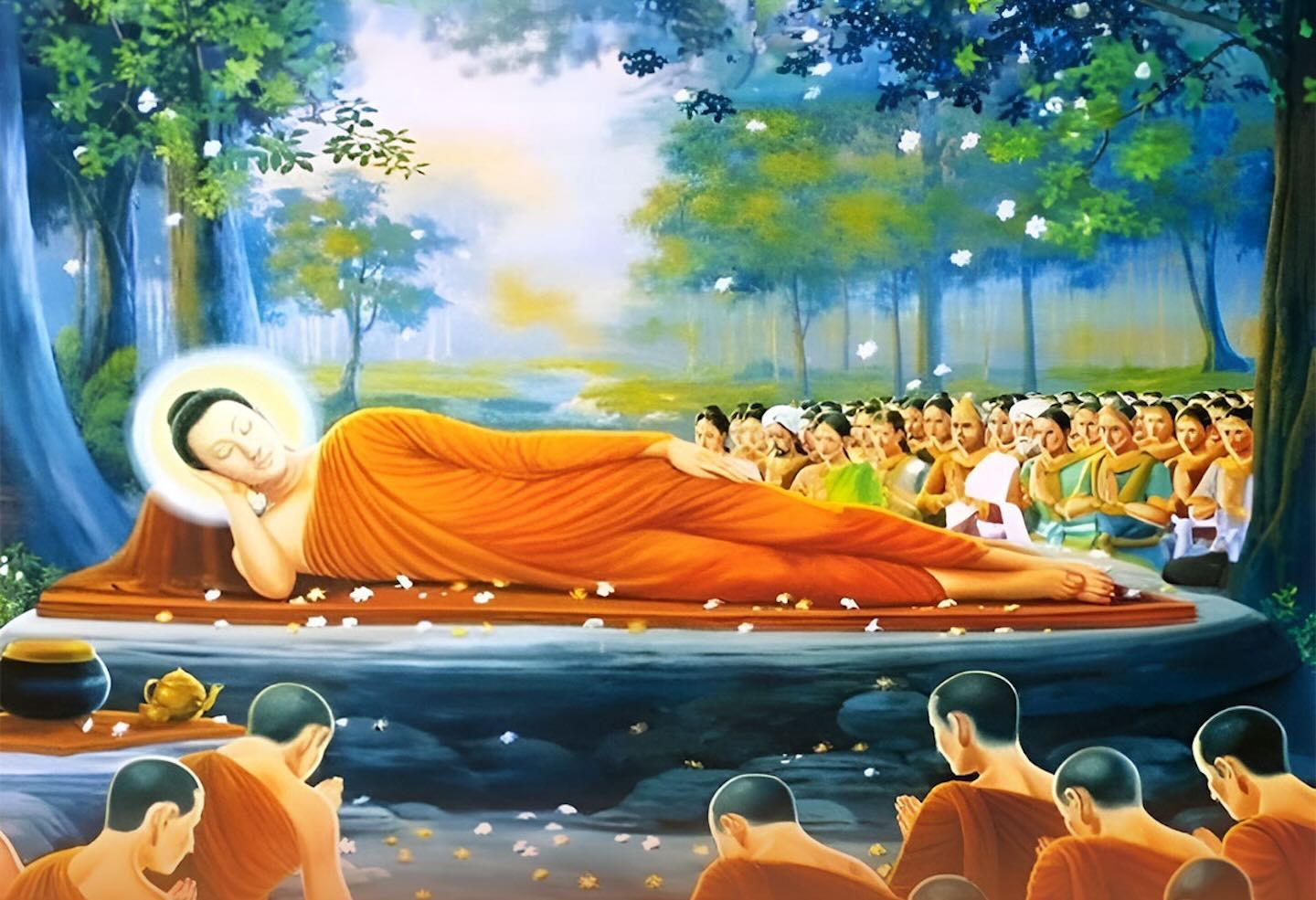
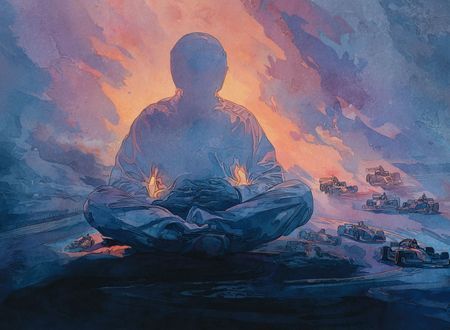
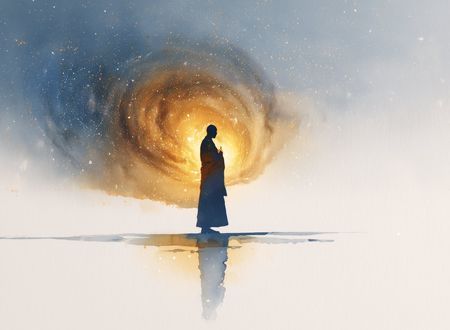

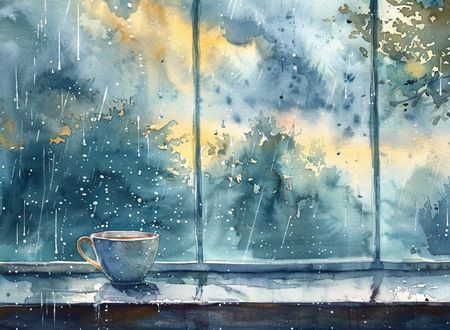
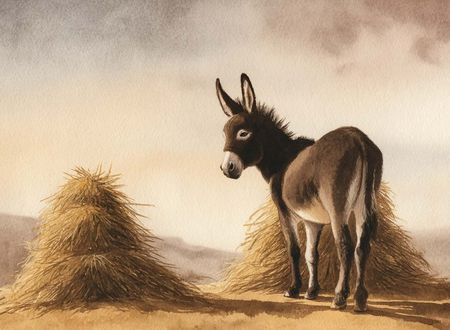


Comments & Discussion
187 COMMENTS
Please login to read members' comments and participate in the discussion.